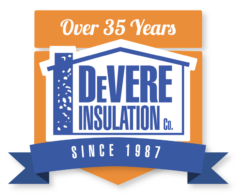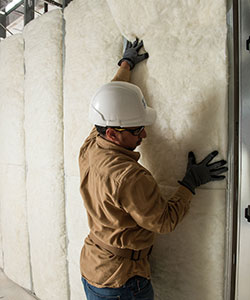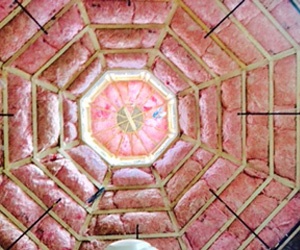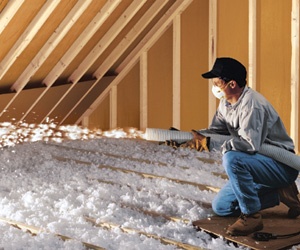Fiberglass Insulation in Baltimore, MD
When most people think of insulation, the first thing that pops into their head is the cotton-candy-like fiberglass insulation. As the most common and widely used type of insulation, fiberglass insulation is made from melted sand, which is spun to create that telltale cotton candy appearance. Then, it is either cut into sizes to fit into framing or used as loose fill to be blown into larger spaces. Fiberglass batt insulation is made primarily of recycled materials and is used to insulate floors, walls, ceilings, and attics.
Since fiberglass batt insulation needs to be properly installed to maximize performance, it is always best to call on the experts at DeVere Insulation. As one of Baltimore’s best insulation companies, we provide unparalleled service and excellent customer care. We take a great deal of pride in the quality of our work, and we are always happy to provide sound advice on all fiberglass insulation options.
Benefits of Fiberglass Batt Insulation
Creating a more comfortable living and working space all year long when properly installed by our insulation professionals, fiberglass batt offers a variety of great benefits. Fiberglass batt insulation:
- Is more affordable than other forms of insulation
- Improves the energy efficiency of your home
- Lowers your energy bills
- Provides effective noise control
Fiberglass Batt Insulation
Whether you are working on a small residential project or constructing office buildings, fiberglass batt insulation is the perfect solution. It is available in widths suited to standard spacing of wall studs and attic or floor joists. Batt insulation:
- Has excellent acoustics
- Is noncorrosive
- Does not absorb moisture
- Is noncombustible when using unfaced batts
- Won’t settle over time
- Is lightweight
- Is certified for superior indoor air quality (IAQ) performance
Blown-in Fiberglass Insulation
One of the best ways for homeowners to lower their energy bills is to start at the top. Attics contain minimal insulation and are susceptible to air leaks. In order to keep all of your warm air from escaping through the cracks, utilize our blown-in fiberglass insulation and air sealing services. This one simple insulation installation can cut your heating and cooling costs in half! Blown-in fiberglass insulation can be installed in nearly any space or densely packed into closed cavities including:
- Garage ceilings under heated areas (where there is a room above a garage)
- Interior walls for sound control
- Exterior walls as part of a BIB installation
- Between floors for sound control
- Upslope areas in attics
Free Estimates from Experienced Insulation Professionals
If you want to keep your home comfortable all year long and see a significant drop in your energy bills, schedule a free estimate with the outstanding insulation team at DeVere Insulation. Our team will take the time to inspect your home and pinpoint any insulation weaknesses. If improvements can be made, our experts will sit down with you and go over all your options to help you make an informed decision.
Wondering if fiberglass insulation is right for your project? Contact us today for a free estimate.



